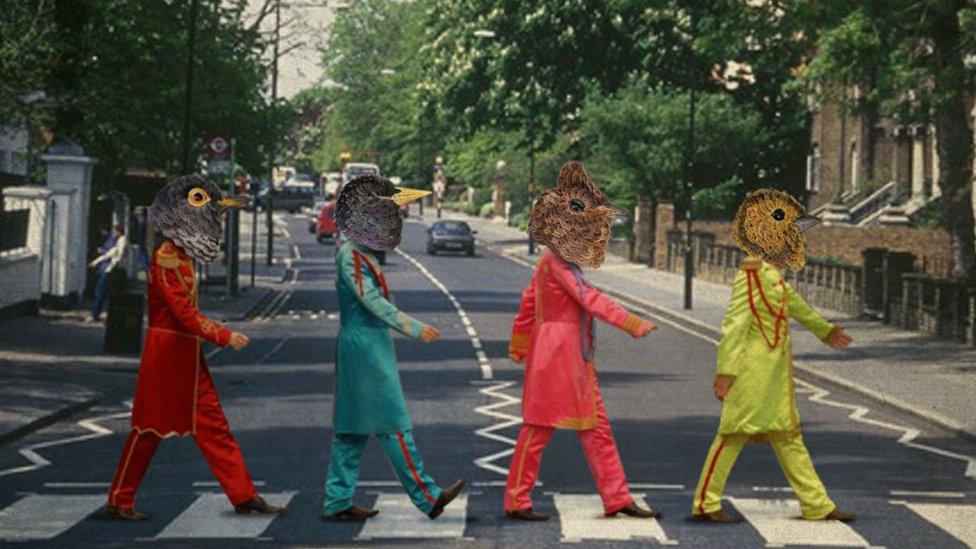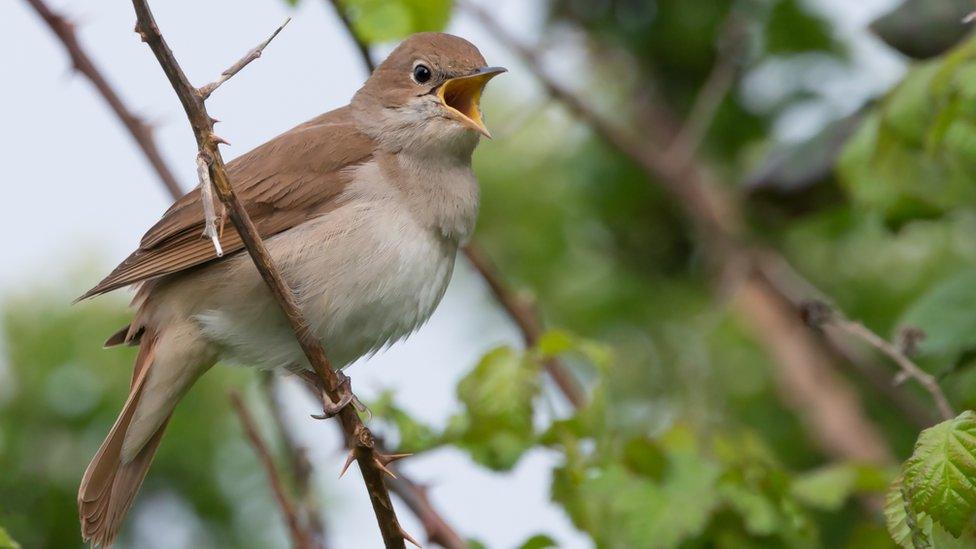RSPB birdsong track highlights loss of 40 million birds
- Published

The RSPB has parodied The Beatles' iconic Abbey Road image to promote the song
The Royal Society for the Protection of Birds (RSPB) has released a charity song to highlight Britain's declining bird numbers.
Let Nature Sing features the song of 25 different threatened and endangered UK birds.
Currently there are 67 species on the charity's "red list" of globally threatened species in severe decline.
Among those most at risk are corncrakes, turtle doves, cuckoos, skylarks and nightingales.
The RSPB says Britain has lost 40 million birds in the last 50 years and 56% of wildlife species in the UK are in decline.
But a recent YouGov survey for the RSPB found only 15% of people in the UK believed nature was in crisis and more than a quarter thought nature was doing well.
Allow YouTube content?
This article contains content provided by Google YouTube. We ask for your permission before anything is loaded, as they may be using cookies and other technologies. You may want to read Google’s cookie policy, external and privacy policy, external before accepting. To view this content choose ‘accept and continue’.

The RSPB hopes the two-minute track, which was released on Friday, will raise awareness about Britain's declining bird population.
The conservation charity hopes the song will enter the UK charts in time for International Dawn Chorus Day on 5 May.
If successful it will become the first track featuring just birdsong to make the charts.
Famous songs which feature birdsong include Minnie Riperton's Lovin' You, which hit number two on the UK charts in 1975, and The Beatles' Blackbird which was released in 1968.
Eight in 10 of the 2,083 British adults surveyed said they believed the government should be doing more to save nature.
The survey also revealed young people were unaware of the crisis facing Britain's birds.
The YouGov survey also found one in three 13 to 17-year-olds had no idea the UK had lost so many birds over the past half century.
But after being told the statistics, more than a third of the 505 teenagers surveyed said they wanted to do something to save nature.
Allow X content?
This article contains content provided by X. We ask for your permission before anything is loaded, as they may be using cookies and other technologies. You may want to read X’s cookie policy, external and privacy policy, external before accepting. To view this content choose ‘accept and continue’.

Martin Harper, the RSPB's director of conservation said: "The signs are all around us that something is not right, that nature is falling silent and you only need to stop and listen to find the beautiful bird song that should be the background music to our life is absent.

Nightingales are on the RSPB's red at risk list
"We all need to start talking about this, and the Let Nature Sing track is a good starting point as it perfectly highlights the music we risk losing.
"Wildlife and our natural world can recover, it can be saved for future generations, but we need more people to talk about the issue and how much something as simple and wonderful as bird song means to each of us.
"Because if we do not start talking about the threats facing nature the inspiration behind so much of our music, poetry and literature may go silent."